Helping Kids Experiencing Homelessness: Project CATCH

Thousands of children are homeless in North Carolina, more than 5,600 in Wake County alone. According to a Duke Margolis Center for Health Policy report, a growing housing affordability crisis and high levels of inflation further worsened housing stability for low-income children, placing more at risk for homelessness. In North Carolina, 1 in 23 children aged 0-5 years old is homeless.
At The Salvation Army of Wake County, the CATCH (Community Action Targeting Children Who Are Facing Homelessness) program is a collaborative case management model designed to provide youth-focused services to children up to 18 years old. Founded in 2011, the program aims to connect children experiencing homelessness with resources and services to address their physical, cognitive, and social/emotional development.
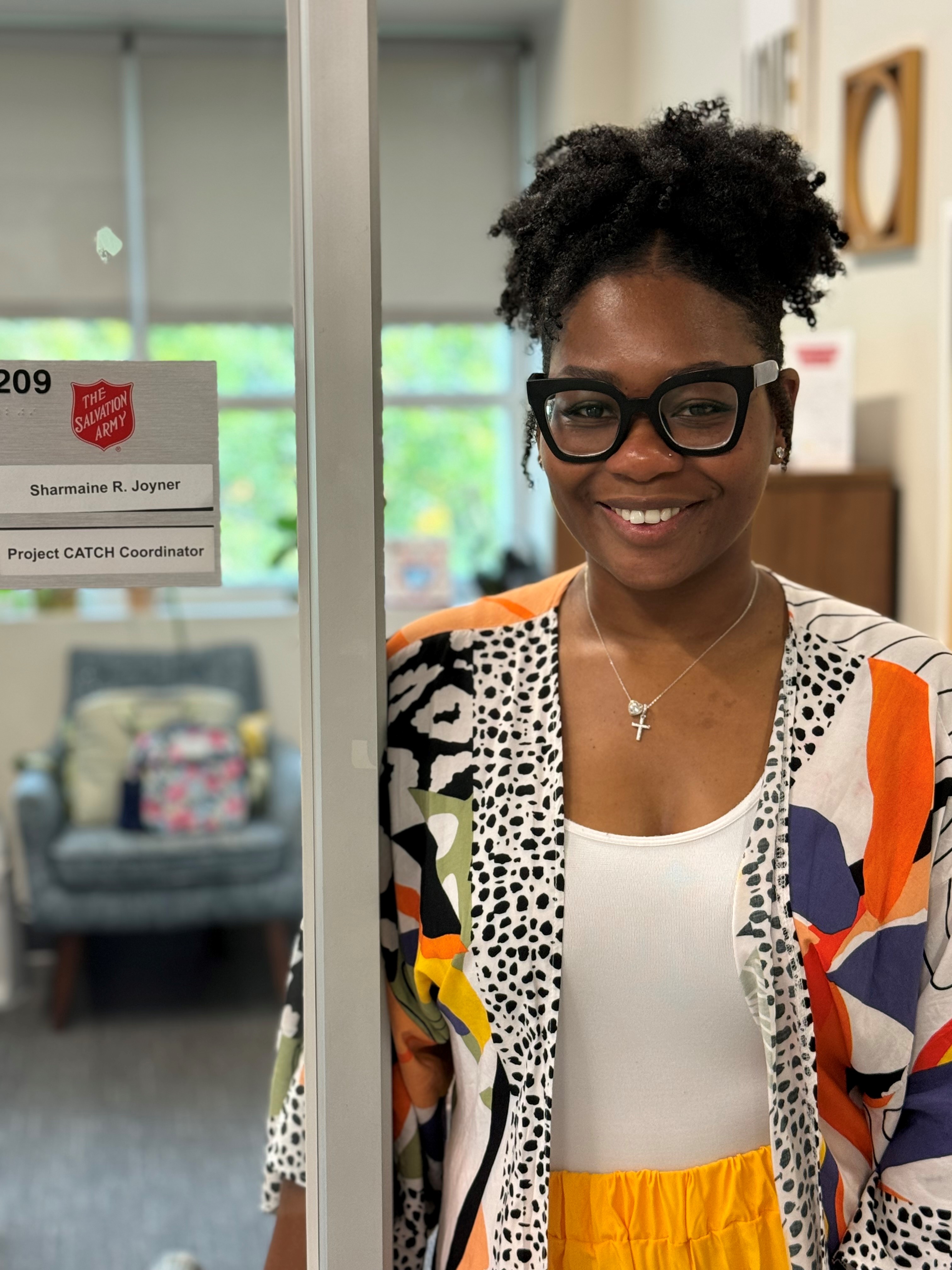
CATCH manager Sharmaine Joyner says the families she sees are often experiencing multiple traumas beyond homelessness—substance abuse, physical and mental health challenges.
“We work with families to provide wrap-around services to meet their needs. I like to say we are a bridge to make connections to our various community partners to support the whole family.”
One bridge that CATCH provides is between homelessness and early childhood education. Through assessments and case management work, the program connects children to programs that help with their readiness once they get to school. Sometimes that involves speech therapy, emotional counseling, or addressing an underlying disability.
“Kids can come from an abusive situation, they may be sleep deprived, malnourished. When they are focused on simply surviving, they are not focused on their schoolwork, and they can fall behind.”
Partnering for Success
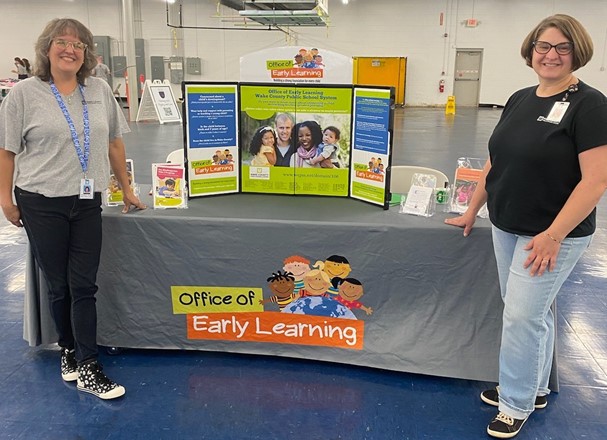
(WCPSS Office of Early Learning Preschool Social Workers Stephanie Veeder (left) and Erica Stuckey (right) at the 2024 Project CATCH Back to School Bash)
A key community partner since CATCH’s inception is the Wake County Public School System’s Office of Early Learning (OEL). OEL provides programs and services for children birth to age five and their families, so children are more prepared for school and more likely to be successful academically and in life.
“Together, the OEL Social Work team and Project CATCH partners work to provide a seamless safety net of programs, advocates, and services to engage our youngest WCPSS students with access to quality early childhood education,” says Stephanie Veeder an OEL social worker. “By providing early and coordinated access to preschool programs for families in transition, we are able to build strong relationships with families to start their educational journey in a positive and successful way.”
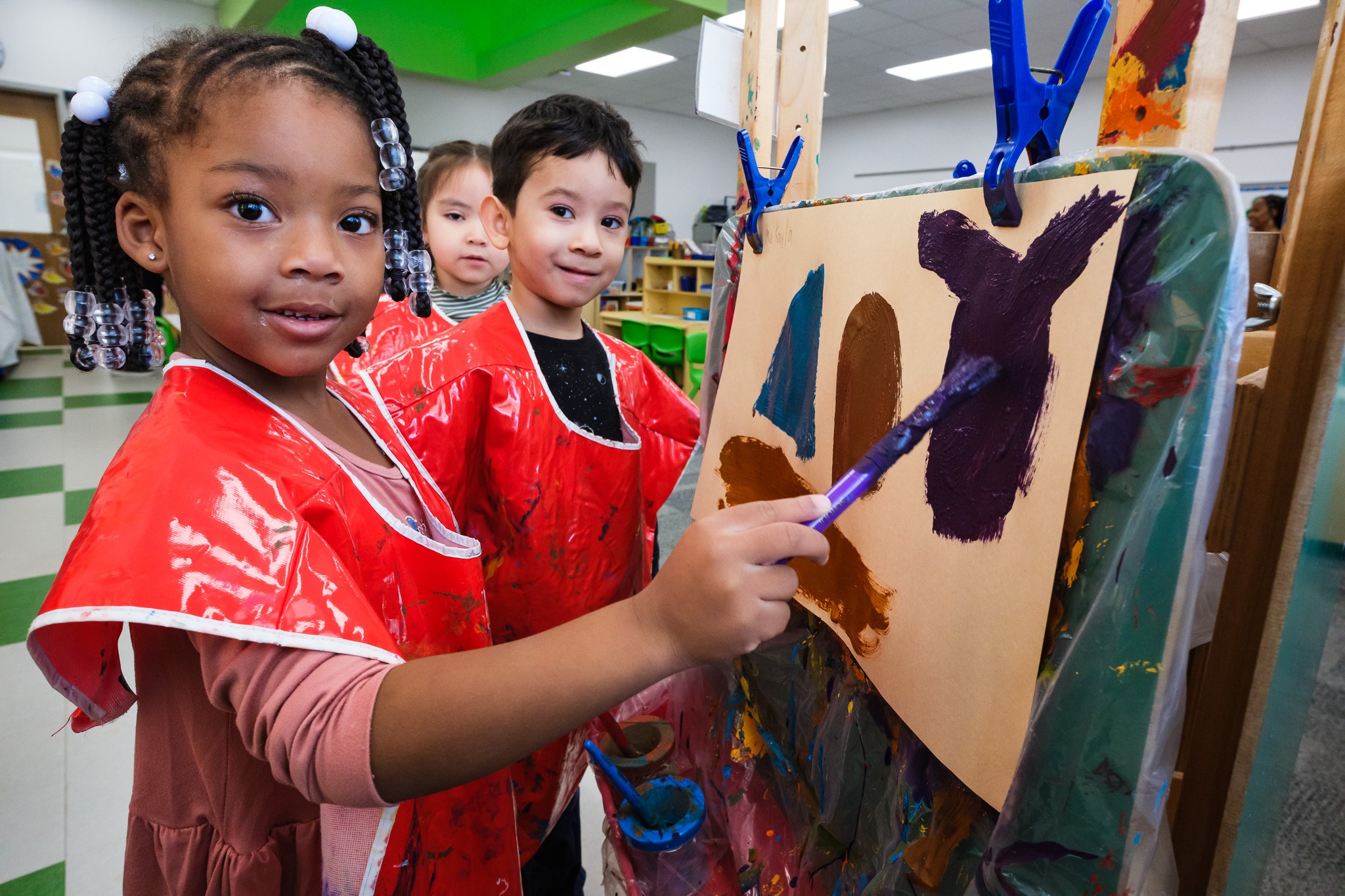
The preschool social work team works closely with Project CATCH referral partners to provide additional support to families of students with potential developmental delays as they navigate the special education evaluation process. The team can also be a supportive guide to navigate the many steps of the Individualized Education Program (IEP) process through completion. They are instrumental in helping to diminish any possible hurdles to school success, which may involve transportation, documentation, or access to school clothing and other basic needs.

Affordable housing continues to be a challenge in Wake County, resulting in families living in hotels, cars, and campgrounds. Veeder says this creates an unstable and often unsafe environment for children at a crucial early stage of their development.
“The current reality is that families in transition have many competing priorities for their time and attention, and when we work together, we can lessen the burden and insure better outcomes both inside of the classroom and in the community. The partnership between Project CATCH and the WCPSS Office of Early Learning is a perfect example of how, as a community, we are stronger together. Due to the shared vision and mission to serve families in transition within Wake County, and to diminish obstacles for young children to be healthy, supported and ready to learn, we can accomplish a brighter future working together for our early learners.”
Addressing Clothing Insecurity

Another long time CATCH partner is Note-in-the Pocket, an organization dedicated to providing clothing to children and families experiencing homelessness and economic hardship. Program director Tammy West says the collaboration addresses clothing insecurity, something that is not being talked about on a national level.
“We are grateful for the support of such a large and reputable organization like The Salvation Army. We believe that it is unacceptable that children are limited in their educational and social development because they do not have appropriate clothes for school.”
Case managers at The Salvation Army are approved federal partners of Note in the Pocket. As such, when they meet families in need of clothing, they can place a request through the organization’s portal for a “mini wardrobe.”
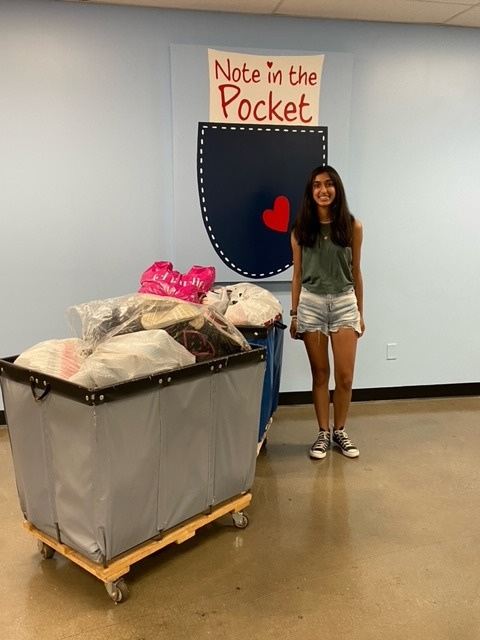
West says Note in the Pocket is always in need of clothing and volunteers and welcomes clothing drives and donations.
CATCH Community Outreach

One of CATCH’s biggest community outreach efforts is its annual Back to School Bash. The program provides backpacks and age-appropriate school supplies for children in need. In 2024, more than 900 families registered for the program and had an opportunity to enjoy a DJ, Bouncy House, face painting, food, some great raffle drawings and even free haircuts!


Note in the Pocket also set up a pop-up store and provided clothing to more than 500 people.

Participants were able to “shop” for items they needed at no cost. Many were able to get multiple outfits and shoes for their family members.
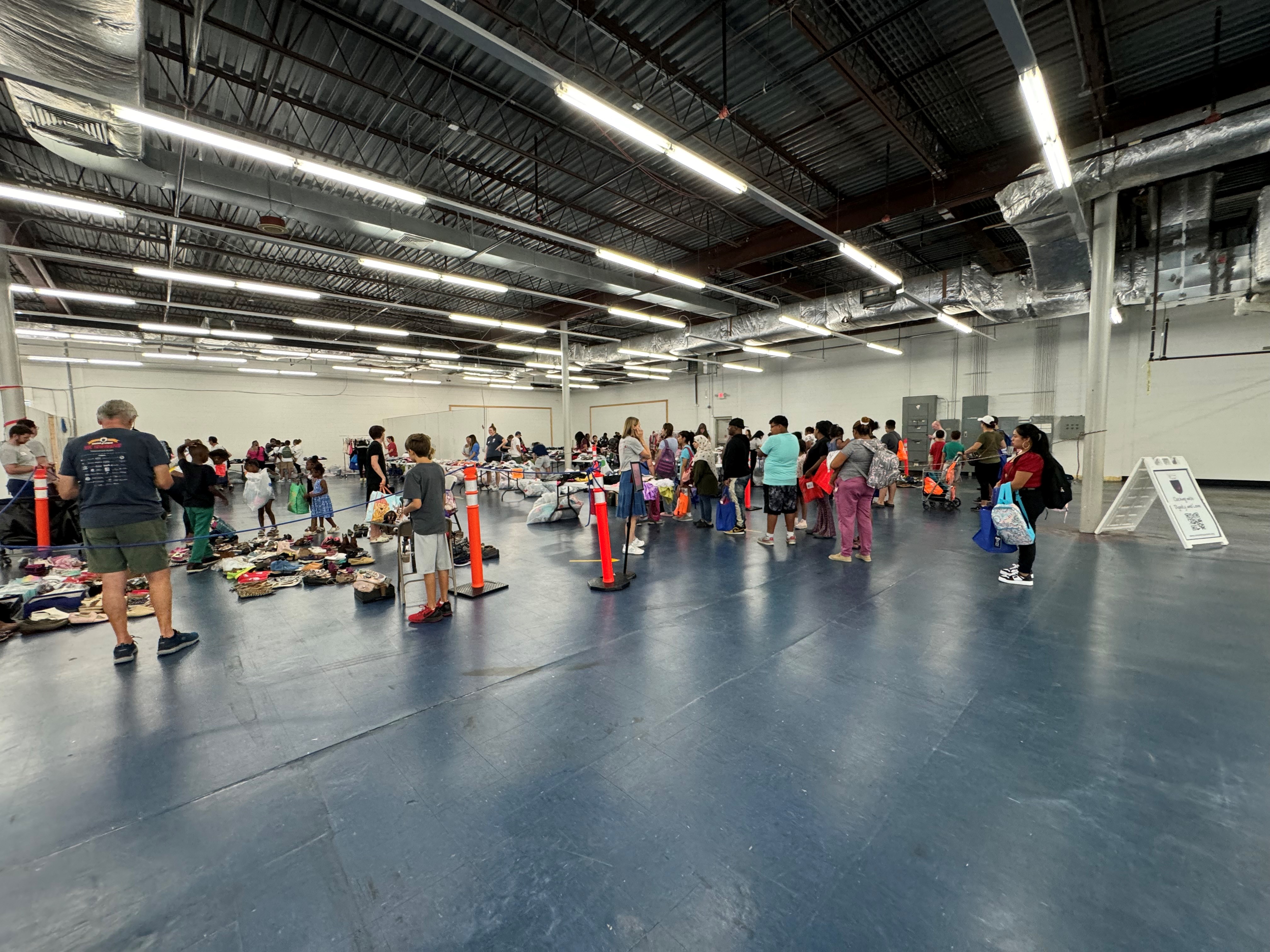
CATCH also partners with PBS Kids. The Roadster Tour helps connect community organizations dedicated to enriching family life. For The Salvation Army it’s a chance to help educate participants about the impact homelessness has on child development and learning.
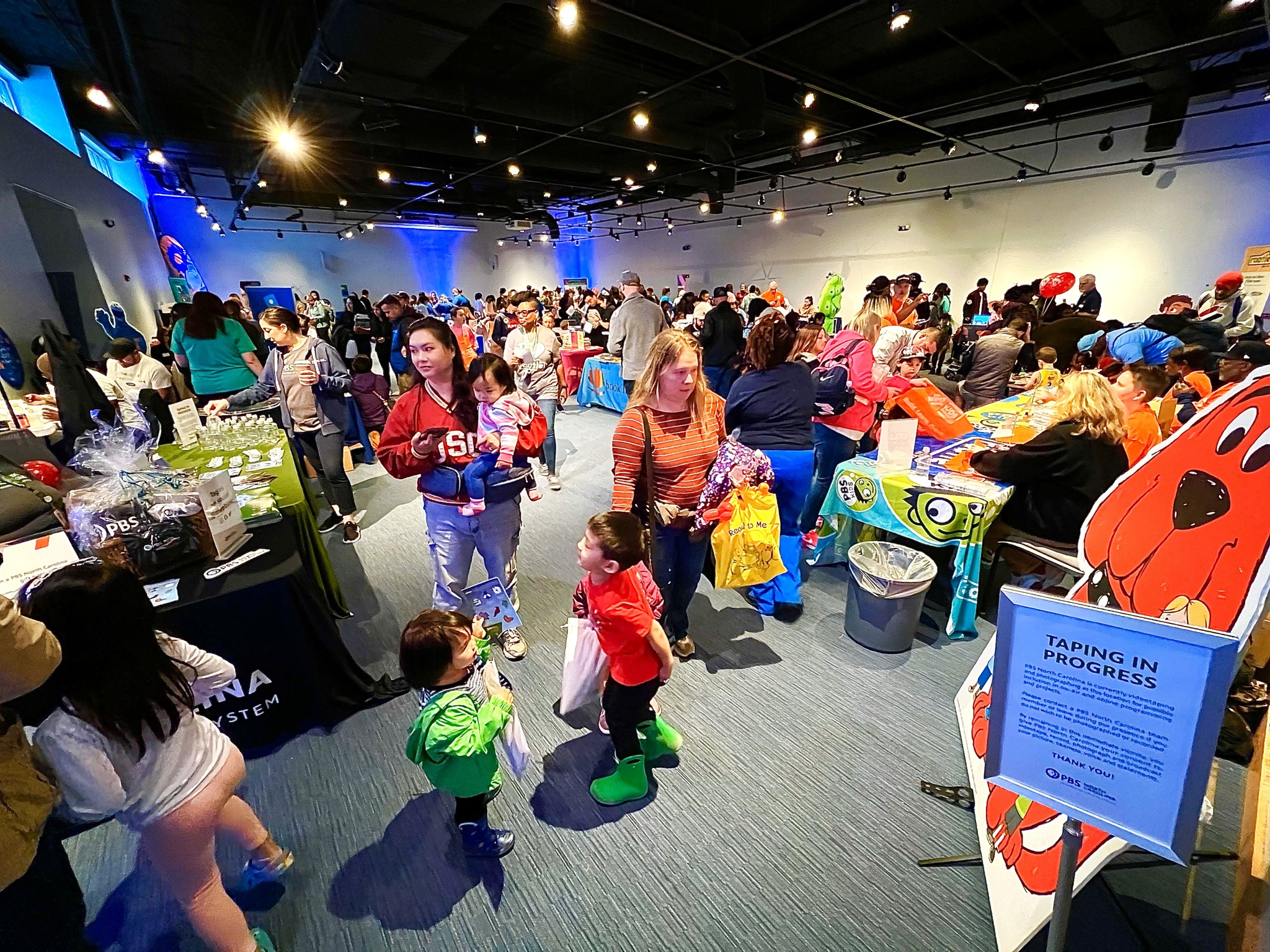
Circle of Parents
To help parents who are experiencing homelessness, CATCH created the Circle of Parents program sponsored by Positive Childhood Alliance of North Carolina. Parent led and professionally facilitated, the parent/child support group gives parents the opportunity to share their challenges and successes while developing a network of support.
“This is a safe space for parents, a place where they can learn positive parenting techniques, and an opportunity to learn from one another and build resilience,” said Joyner.
The CATCH team also provides trauma trainings throughout the state at various childcare centers to better equip caregivers with the ability to identify children who are homeless and how to help.
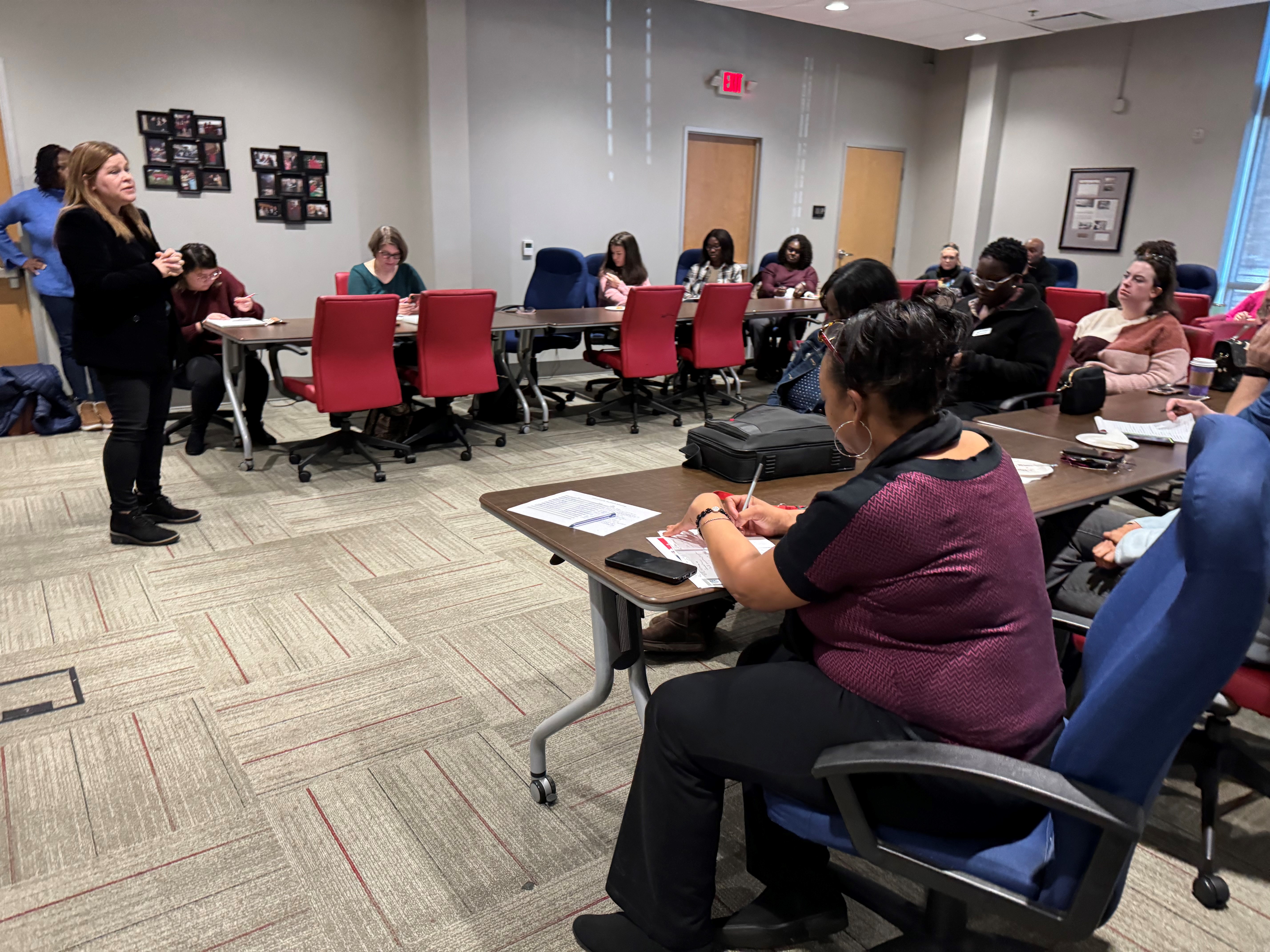
(February 2024 CATCH meeting, Speaker: Michelle Schaefer-Old, CEO, Diaper Bank of NC)
Monthly CATCH community partner meetings also provide a broad spectrum of agencies an opportunity to share updates and resources to help their respective clients.
CATCH is currently in 18 North Carolina counties. Joyner’s hope is to see it implemented across the state.
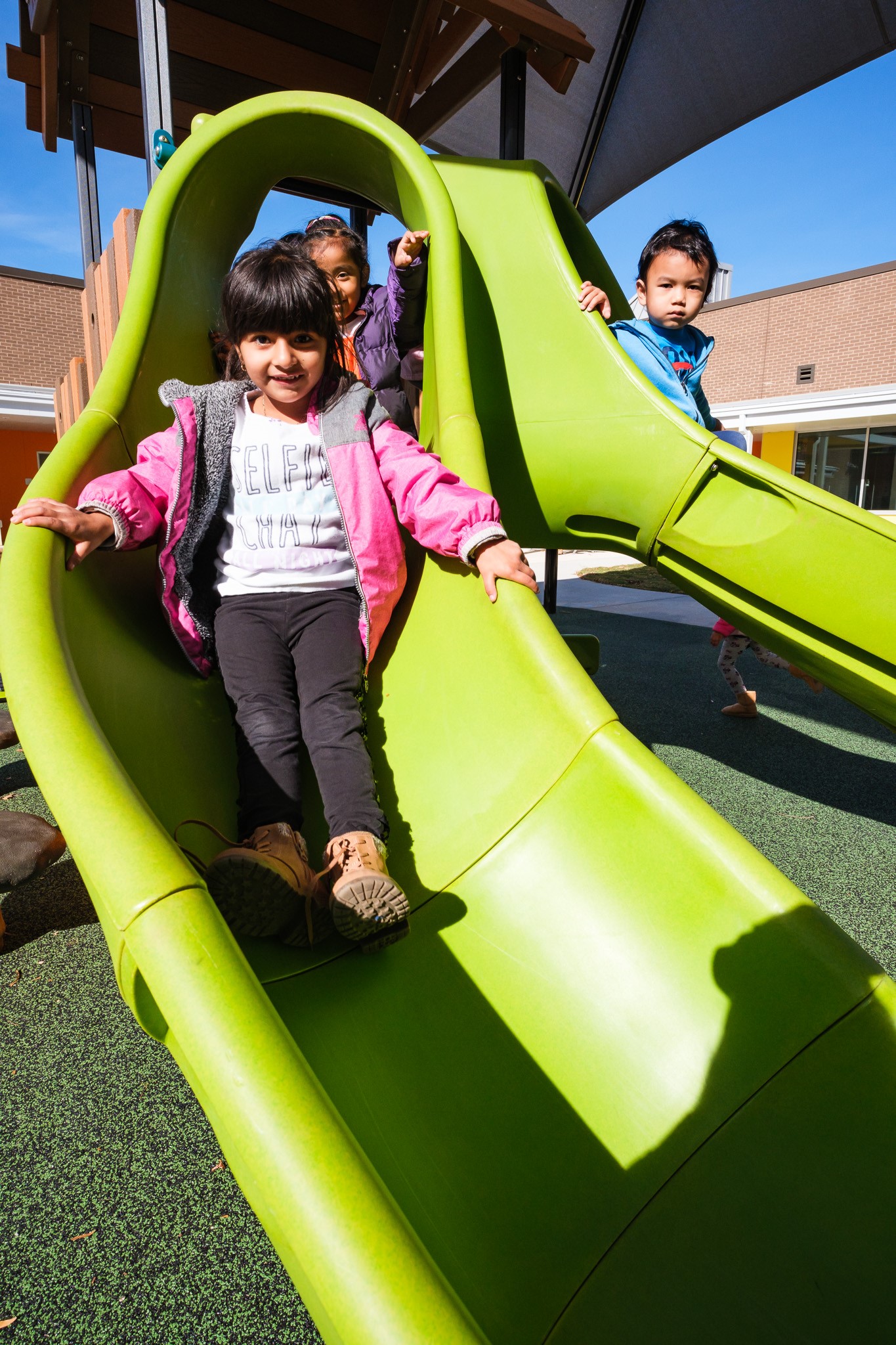
(Courtesy: WCPSS Office of Early Learning)
“CATCH is unique. Everyone thinks if someone is homeless let’s help them get a home, but our program is so much more than that. We are helping to set children up for future success and we are able to do that thanks to the many community partners who share our passion and vision for a brighter future for young children and their families.”
